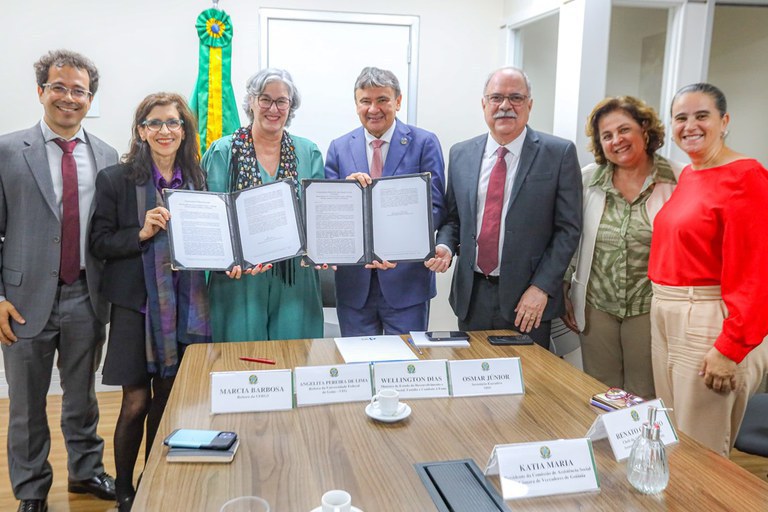Advanced cookie settings
To improve your experience on the platform and provide personalized services, we use cookies.
Notícias
HIGHER EDUCATION

UFRGS, UFG, and UFSC’s participation in the Alliance will focus on the knowledge pillar, one of the initiative’s three structuring axes - Credit: André Oliveira/MDS
In a significant benefit to the cause of eradicating hunger and poverty, three federal universities linked to the Brazilian Ministry of Education (Ministério da Educação/MEC) have joined the Global Alliance against Hunger and Poverty. This intiative was launched during the G20 meeting in Brazil. The pioneering institutions are the Federal University of Rio Grande do Sul (Universidade Federal do Rio Grande do Sul/UFRGS), the Federal University of Goiás (Universidade Federal de Goiás/UFG), and the Federal University of Santa Catarina (Universidade Federal de Santa Catarina/UFSC).
The involvement of UFRGS, UFG and UFSC in the Alliance will focus on the knowledge pillar, one of the initiative’s three structuring axes. This pillar includes the development of studies and indicators that support the Alliance by cataloging successful good practices in public policies from different countries aimed at combating hunger and poverty.
The formalization of the institutions’ participation took place during a meeting in December 2024 with Wellington Dias, Brazil’s Minister of Social Development and Assistance, Family, and Hunger Eradication (MDS). In addition to the Brazilian universities, the University of Buenos Aires (UBA) in Argentina is also a participant in the Global Alliance against Hunger and Poverty.
CONTRIBUTIONS – UFG has experience in countering hunger and poverty, with initiatives including projects focused on school meals programs, strengthening family farming, and developing technologies to reduce inequalities and food insecurity. At the time of UFG's adherence to the Alliance, Dean Angelita Lima emphasized the university’s commitment to the Brazil Without Hunger Plan (Plano Brasil Sem Fome). “I would like to reaffirm the commitment we made upon joining the Alliance: to make our university's knowledge and staff available to the initiative, in coordination with Brazil’s plan to combat hunger,” she said.
UFRGS Dean Márcia Cristina Barbosa noted that universities play a crucial role in public policy analysis and, therefore, it is important to produce data to evaluate results. “The universities need to go deeper into the essence of important data. This way we will be able to look back and say: ‘These policies generate results,’ for example: ‘The youth from Bolsa Família are now in different scenarios,’” she explained. UFRGS will contribute to the Alliance through research on rural development sociology and agri-food studies. The institution also stands out for the scientific and technological advancements of its Schools of Agronomy and Veterinary Medicine, aimed at efficient and sustainable food production.
At the meeting, UFSC was represented by Dean Irineu Manoel de Souza and Law Professor Cristiane Derani. The university is a leader in research on food security, sustainable food production, ecological restoration, and environmental conservation, with a particular focus on biodiversity and climate protection. UFSC’s pioneering collaborations with local producers include internationally recognized work in oyster matrix production and technology transfer for sustainable food production practices.
ALLIANCE – The Global Alliance against Hunger and Poverty aims to eradicate hunger and poverty by 2030, reduce inequalities, and promote global partnerships for sustainable development, with an emphasis on inclusive and fair transitions. The initiative is structured around three main pillars: national, financial, and knowledge, all aimed at mobilizing and coordinating resources for evidence-based policies that are tailored to the local realities of member states. Although the Alliance was launched within the context of the G20, it will operate as an independent global platform, with ongoing support and the potential for new bolstering efforts from future G20 presidencies.
